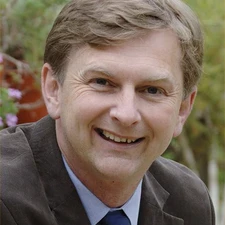Paul J. Valdes

The 2015 Milutin Milanković Medal is awarded to Paul J. Valdes for fundamental contributions to the study of the major changes in atmospheric dynamics and the coupling between the atmosphere, ocean, biosphere and ice sheets.
Paul Valdes is one of the pioneers in using comprehensive Earth system models to study the major changes in atmospheric dynamics and the coupling between the atmosphere, ocean, biosphere and ice sheets. His first important contribution to climate science was on the mechanisms that lead to the organisation of winter storms into storm tracks across the North Atlantic and Pacific. He then moved on to study past climates where he made a significant contribution to the understanding of the influence of Earth astronomical parameters on climate change through geological time. He performed the first successful simulation of the initiation of an ice sheet with a general circulation model demonstrating that astronomical forcing is capable of triggering a transition to a glacial state. He also contributed to the study of glacial ocean circulation and its role in climate variability. Among his pioneering work is the simulation of the dust and methane cycle during glacial times. He also explored links between Carboniferous and Jurassic astronomically induced climate variations and the potential for astronomical forcing to generate ice sheets in Antarctica during the Mesozoic Era.
His research interests extend beyond the physical part of the Earth system to the understanding of hominid dispersal and its impact on the extinction of late Quaternary mega fauna. His success can be attributed to his interdisciplinary interests, his ability to link models with the various field data and palaeoclimate proxies, and his effective communication with everyone involved. Valdes has published more than 180 papers on a wide range of subjects, from palaeoclimate to future climate change to archaeology. Although primarily involved in using the state-of-the art climate models, he also led development of the UK Earth system models of intermediate complexity (GENIE) and for almost twenty years he has played a leading role in the Palaeoclimate Modelling Intercomparison Project (PMIP). Finally, Paul Valdes has inspired a generation of palaeoclimate scientists who have been guided by his great enthusiasm and knowledge.
